Today I felt a great disturbance in the Force, as if millions of voices cried out in terror. Mohamed Fawzi of the blog Zeros & Ones posted a VMware vs Hyper-V comparison that I felt was neither fair nor truthful. In fact, I think it is the worst bit of journalism I’ve witnessed in quite a while and even in the face of the VMworld 2008/Microsoft Hyper-V poker chip fiasco, I don’t know if Microsoft would even endorse this tripe.
I didn’t have a lot of time today for rebuttal and thus following are my brief responses:
Cost: It is impossible to summarize cost of a product (and TCO) in one short sentence as you have done.
Support: VMware was the first virtualization company to be listed on the Microsoft SVVP program. Enough said about that. If you want to talk about Linux, VMware supports many distros. Hyper-V last time I checked supports one.
Hardware Requirements: No comparison. Microsoft does not have VMotion/hot migration or similar. New server “farms” are not necessarily needed, although a rolling upgrade can be performed using Enhanced VMotion Compatibility where the majority of the technology that will allow this comes from the processor hardware vendors.
Advanced Memory Management: Content based page sharing is a proven technology that I use in a production environment with no performance impacts. Microsoft does not have this technology and therefore forces their customers to achieve higher consolidation ratios by spending more money on RAM than what would be needed in a VMware datacenter. Other memory overcommit technologies such as ballooning and swapping come with varying levels of penalty and VMware offers the flexibility to the customer as to what they would like to do in these areas. Microsoft offers no flexibility or choices.
Hypervisor: ESXi embedded is 32MB. ESXi installable is about 1GB. Hyper-V’s comparable products once installed are 1GB and in the 4-10GB neighborhood. Your point of the Hyper-V hypervisor being 872KB, whether truth or not, bears no relevance for comparison purposes.
Drivers Support: VMware maintains tight control which fosters platform stability. Installation of XYZ drivers and software adds to instability, support costs, and down time.
Processor Support: False. ESX/ESXi operates on x86 32bit and x64 64bit processors. Current 3rd party vendor neutral performance benchmarking between ESX and Hyper-V shows no performance degradation in ESX compared to Hyper-V as a result of address translation or otherwise. A more truthful headline to be exposed here is Hyper-V isn’t compatible with 32-bit hardware. Why didn’t you mention this in your Hardware Requirements section?
Application Support: I don’t see any Windows support issues. Again I remind you, VMware is certified on the Microsoft SVVP program. Another comparison is made with a particular VMotion restriction. I’ll grant you that if you admit Microsoft has no VMotion or hot migration at all.
Product Hypervisor Technology: We already covered this in the Drivers Support section.
Epic virtualization and storage blogger Scott Lowe provides his responses here.
Mohamed Fawzi, while it is nice to meet you, it is unfortunate that we met under these terms. Having just discovered your blog today, I hope you don’t mind if I take a look at some of your other material as it looks like you’ve been at the blogging for a while (much longer than I). I hope to find some good and interesting reads.
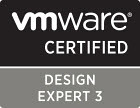
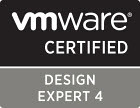


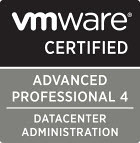
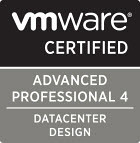
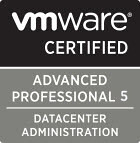
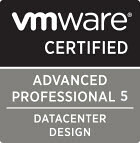
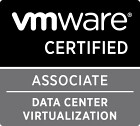

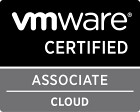





“Today I felt a great disturbance in the Force, as if millions of voices cried out in terror.”
LOL :)))) I liked this one, seriously.
But I do not think that it is that bad, just give it another chance 🙂
Jason,
Sad to see us waste or time reading it.
Roger L
http://rogerlunditblog.blogspot.com/
Very well said mate.
Good job
It’s actually pretty good when information like this is presented in a public forum. These are just some of the impressions out there. He’s a blogger, these are his thoughts. Imagine what some people with similar background are thinking? This gives us some insight. Obviously he’s not used ESX in a real world scenario with hundreds of servers. He’s not seen how Update Manager can patch an entire data center using vMotion with no service interruption.
By voicing his thoughts he’s given us an opportunity to address his concerns and feelings.
Fortunately most well run businesses run their operations based on facts and logic, not feelings and emotions.
Having a bake off and real world comparisons between the various datacenter virtualization options will prove to Mohamed and other skeptics the benefits of virtualization.
The tight economic times do not allow for companies to setup new servers without considering the ROI and long term TCO VMware offers. Do more with less people. It’s not just about the hardware.
P.S. The memory over-subscription is an option and not used much with real world enterprise work loads. When setting up new machines we like to leave lots of cushion for CPU and RAM resources. Typically N+2 servers with a planned cunsumption of 60-80% at peak.
Thank you for the feedback. It’s dog eat dog in the virtualization arena and nobody needs to be reminded who VMware’s largest competitor is. The smoke coming from their camp is thick enough and frankly this recent blog post could very well be a direct result of successful marketing on that end. With that, I want to do my part to keep misinformation to a minimum while maintaining as much tastefullness and effectiveness as possible. Thankfully, Fawzi is in good spirits and has responded above with smiles. I saw some other good titles on his blog that I want to catch up on.
I am with you Jason, I feel Microsoft has done some extremely good marketing and because they are Microsoft it immediately makes their products “The Best of the Best”. Don’t get me wrong, I think they do have some solid products and feel Hyper-V may be a decent fit for some companies (just like Scott Lowe), but I feel that a lot of people are misinformed and just need to do a little more research before claiming Microsoft is the almighty king.
I’ve just posted this on Fawzi’s blog and also Scott Lowe’s blog. Here is what I posted:
Hmmm….there are many falsehoods posited here. Many people have already enumerated them.
Unfortunately, this blog’s technical inaccuracies come at the expense of your credibility. Instead of retaliating at the posters, it might be more credible to refute their points using technical information and fact (notwithstanding ad hominem attacks).
So here’s your chance:
1. How much experience do you have with installing, configuring and managing ESX?
2. How much experience do you have using Hyper-V in a production environment? (Experimental labs used at a company does not count).
3. Are there any differences in memory management between ESX and Hyper-V? If so, please explain their function and when they actually get implemented.
4. Are there any networking differences between Hyper-V and ESX? If so, please list them and please describe the advantage/disadvantage to both.
5. Describe how one would backup a Microsoft Hyper-V environment and how one would backup an ESX environment.
Assume the latest versions for both ESX and Hyper-V.
If you can technically answer these questions and sound and rational terms, you’ve got a shot at restoring credibility. I look forward to your response.